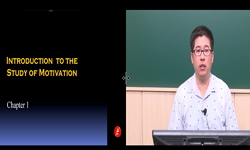Objectives The purpose of this study was to investigate demotivating factors influencing EFL learners of Korean university students. The study also aimed to identify whether any significant differences exist according to gender, the year of study, and...
http://chineseinput.net/에서 pinyin(병음)방식으로 중국어를 변환할 수 있습니다.
변환된 중국어를 복사하여 사용하시면 됩니다.
- 中文 을 입력하시려면 zhongwen을 입력하시고 space를누르시면됩니다.
- 北京 을 입력하시려면 beijing을 입력하시고 space를 누르시면 됩니다.

한국 대학생들의 영어학습 탈동기 요인 연구 = Demotivating factors affecting EFL learners of Korean university students
한글로보기https://www.riss.kr/link?id=A108327376
-
저자
박은수 (경남대학교)
- 발행기관
- 학술지명
- 권호사항
-
발행연도
2022
-
작성언어
Korean
-
주제어
영어학습 ; 영어 학습자 ; 동기 ; 탈동기 ; 한국 대학생 ; English learning ; EFL learners ; motivation ; demotivation ; Korean university students
-
등재정보
KCI등재
-
자료형태
학술저널
-
수록면
455-468(14쪽)
- DOI식별코드
- 제공처
-
0
상세조회 -
0
다운로드
부가정보
다국어 초록 (Multilingual Abstract)
Methods For this purpose, 143 undergraduate students from A university in Busan participated in this study. The study used a survey for data collection. Descriptive statistics, t-test, ANOVA., and Scheffé test were used to analyze the significant differences based on individual variables.
Results Difficulties in learning English and social pressure on English were found to be the major demotivating factors among Korean university students. In particular, difficulties of writing and speaking in English were the most demotivating factors. It was also found that there were statistically significant differences depending on gender, the year of study, and students’ majors. Female students were more demotivated than male students.
On the year of study, freshmen and juniors were more demotivated than sophomore and seniors. The pressure on English test scores was the demotivating factor to students studying humanities and social studies. The difficulty of English speaking was the demotivating factor to students studying nature science.
Conclusions Based on the results, university students were negatively affected by COVID-19. pandemic in terms of English learning and achievement. Identifying demotivating factors in learning English can help educators to be more efficient in process of English teaching. In order to prevent students from being demotivated, educators should pay attention to the importance of background characteristics when developing English curricular.
Objectives The purpose of this study was to investigate demotivating factors influencing EFL learners of Korean university students. The study also aimed to identify whether any significant differences exist according to gender, the year of study, and students’ majors.
Methods For this purpose, 143 undergraduate students from A university in Busan participated in this study. The study used a survey for data collection. Descriptive statistics, t-test, ANOVA., and Scheffé test were used to analyze the significant differences based on individual variables.
Results Difficulties in learning English and social pressure on English were found to be the major demotivating factors among Korean university students. In particular, difficulties of writing and speaking in English were the most demotivating factors. It was also found that there were statistically significant differences depending on gender, the year of study, and students’ majors. Female students were more demotivated than male students.
On the year of study, freshmen and juniors were more demotivated than sophomore and seniors. The pressure on English test scores was the demotivating factor to students studying humanities and social studies. The difficulty of English speaking was the demotivating factor to students studying nature science.
Conclusions Based on the results, university students were negatively affected by COVID-19. pandemic in terms of English learning and achievement. Identifying demotivating factors in learning English can help educators to be more efficient in process of English teaching. In order to prevent students from being demotivated, educators should pay attention to the importance of background characteristics when developing English curricular.
국문 초록 (Abstract)
방법 이를 위하여 부산 소재 A 대학교 학생 143명을 대상으로 설문조사를 실시하였다. 설문지는 개인정보, 영어학습 기초조사, 영어학습 탈동기 영역, 총 32문항으로 구성되었다. 영어학습 탈동기는 자신감 부족, 영어학습의 어려움, 외적 동기 부족, 영어학습 방법에 대한 불만, 사회적 분위기, 영어권 문화 및 영어권 집단에 대한 부정적 태도의 총 6개 요인을 조사하였다. 자료 분석은 빈도분석, t-검증, ANOVA를 실시하였으며 사후검증으로 Scheffé 검증을 실시하였다.
결과 대학생들의 주요 탈동기 요인은 영어학습의 어려움과 영어를 강조하는 사회적 분위기였다. 영어학습의 어려움과 관련해서는영작문과 영어회화가 가장 높은 탈동기 요인이었다. 영어를 강조하는 사회적 분위기는 일정 점수를 넘어야한다는 압박감과 무조건공부해야하는 학습 부담이 가장 높은 탈동기 요인이었다. 탈동기 요인은 성별, 학년별, 전공계열별로 유의미한 차이가 있었다. 여학생이 남학생보다 탈동기가 높았으며, 1학년과 3학년이 다른 학년보다 탈동기가 높았다. 인문사회계열 학생들은 일정점수를 넘어야한다는 압박감이 탈동기 요인이었으며, 자연계열 학생들은 영어로 말할 때 생각대로 되지 않는 이유가 탈동기 요인이었다.
결론 영어학습 기초조사 결과를 통해 코로나 19 팬데믹 상황은 대학생들의 영어학습에 영향을 미친 것으로 나타났다. 취업을 위해영어가 필요한 현실을 놓고 볼 때 대학은 학생들의 영어학습 탈동기 요인을 파악하고 이를 적극적으로 영어교육과정에 반영할 필요가 있다. 특히 학년별, 전공계열별 탈동기 요인을 분석해 영어수업을 운영한다면 보다 효과적인 영어수업이 될 것이다.
목적 학습자의 동기부여와 성공적인 영어학습을 지원하기 위해서는 탈동기 요인을 이해는 것이 무엇보다 중요하다. 본 연구에서는대학생들의 영어학습에 부정적인 영향을 미치는 탈동기 ...
목적 학습자의 동기부여와 성공적인 영어학습을 지원하기 위해서는 탈동기 요인을 이해는 것이 무엇보다 중요하다. 본 연구에서는대학생들의 영어학습에 부정적인 영향을 미치는 탈동기 요인을 조사하고 성별, 학년별, 전공계열별로 어떻게 차이가 있는지 살펴보았다.
방법 이를 위하여 부산 소재 A 대학교 학생 143명을 대상으로 설문조사를 실시하였다. 설문지는 개인정보, 영어학습 기초조사, 영어학습 탈동기 영역, 총 32문항으로 구성되었다. 영어학습 탈동기는 자신감 부족, 영어학습의 어려움, 외적 동기 부족, 영어학습 방법에 대한 불만, 사회적 분위기, 영어권 문화 및 영어권 집단에 대한 부정적 태도의 총 6개 요인을 조사하였다. 자료 분석은 빈도분석, t-검증, ANOVA를 실시하였으며 사후검증으로 Scheffé 검증을 실시하였다.
결과 대학생들의 주요 탈동기 요인은 영어학습의 어려움과 영어를 강조하는 사회적 분위기였다. 영어학습의 어려움과 관련해서는영작문과 영어회화가 가장 높은 탈동기 요인이었다. 영어를 강조하는 사회적 분위기는 일정 점수를 넘어야한다는 압박감과 무조건공부해야하는 학습 부담이 가장 높은 탈동기 요인이었다. 탈동기 요인은 성별, 학년별, 전공계열별로 유의미한 차이가 있었다. 여학생이 남학생보다 탈동기가 높았으며, 1학년과 3학년이 다른 학년보다 탈동기가 높았다. 인문사회계열 학생들은 일정점수를 넘어야한다는 압박감이 탈동기 요인이었으며, 자연계열 학생들은 영어로 말할 때 생각대로 되지 않는 이유가 탈동기 요인이었다.
결론 영어학습 기초조사 결과를 통해 코로나 19 팬데믹 상황은 대학생들의 영어학습에 영향을 미친 것으로 나타났다. 취업을 위해영어가 필요한 현실을 놓고 볼 때 대학은 학생들의 영어학습 탈동기 요인을 파악하고 이를 적극적으로 영어교육과정에 반영할 필요가 있다. 특히 학년별, 전공계열별 탈동기 요인을 분석해 영어수업을 운영한다면 보다 효과적인 영어수업이 될 것이다.
1 유세정, "한국 중학생의 영어학습 동기상실 요인" 연세대학교 교육대학원 2010
2 김정현 ; 김태영, "한국 대학생들의 영어 학습 동기 및 탈동기 요인: 영어학습의향, 영어선호도, 영어성취도에 따라" 팬코리아영어교육학회 31 (31): 43-66, 2019
3 이은경 ; 오민아, "코로나19 팬데믹 상황으로 인한 중⋅고등학생 학업성취도 변화와 영향요인 분석" 학습자중심교과교육학회 22 (22): 531-545, 2022
4 김경자, "중학생들의 영어학습 동기저하 모형 연구" 한국영어교과교육학회 13 (13): 41-59, 2014
5 박은수, "대학생들의 영어사교육 실태 및 인식 분석: 부산, 경남지역을 중심으로" 학습자중심교과교육학회 13 (13): 87-108, 2013
6 한희진 ; 양정호, "대학생 사교육비 실태 분석" 학습자중심교과교육학회 18 (18): 61-78, 2018
7 김지하 ; 김한경, "대학생 과외 및 일반 사교육비 결정요인 분석" 한국교육재정경제학회 28 (28): 49-76, 2019
8 Deci, E., "The"what"and"why"of goal pursuit : Human needs and the self-determination of behavior" 11 (11): 227-268, 2000
9 Hu, R., "The relationship between demotivation an EFL learners’ English language proficiency" 4 (4): 88-96, 2011
10 Dornyei, Z., "The psychology of the language learner : Individual differences in second language acquisition" Lawrence Erlbaum Associates 2005
1 유세정, "한국 중학생의 영어학습 동기상실 요인" 연세대학교 교육대학원 2010
2 김정현 ; 김태영, "한국 대학생들의 영어 학습 동기 및 탈동기 요인: 영어학습의향, 영어선호도, 영어성취도에 따라" 팬코리아영어교육학회 31 (31): 43-66, 2019
3 이은경 ; 오민아, "코로나19 팬데믹 상황으로 인한 중⋅고등학생 학업성취도 변화와 영향요인 분석" 학습자중심교과교육학회 22 (22): 531-545, 2022
4 김경자, "중학생들의 영어학습 동기저하 모형 연구" 한국영어교과교육학회 13 (13): 41-59, 2014
5 박은수, "대학생들의 영어사교육 실태 및 인식 분석: 부산, 경남지역을 중심으로" 학습자중심교과교육학회 13 (13): 87-108, 2013
6 한희진 ; 양정호, "대학생 사교육비 실태 분석" 학습자중심교과교육학회 18 (18): 61-78, 2018
7 김지하 ; 김한경, "대학생 과외 및 일반 사교육비 결정요인 분석" 한국교육재정경제학회 28 (28): 49-76, 2019
8 Deci, E., "The"what"and"why"of goal pursuit : Human needs and the self-determination of behavior" 11 (11): 227-268, 2000
9 Hu, R., "The relationship between demotivation an EFL learners’ English language proficiency" 4 (4): 88-96, 2011
10 Dornyei, Z., "The psychology of the language learner : Individual differences in second language acquisition" Lawrence Erlbaum Associates 2005
11 Dornyei, Z., "Teaching and researching motivation" Longman 2001
12 Yan, H., "Student and teacher demotivation in ESL" 5 (5): 109-121, 2009
13 Muhonen, J., "Second language demotivation: factors that discourage pupils from learning English language" University of Jyvaskyla 2004
14 Dornyei, Z., "Motivation, language identity and the L2 self" Multilingual Matters 2009
15 Dornyei, Z., "Motivation and motivating in foreign language learning" 40 (40): 45-78, 1994
16 Jones, B., "Motivating students by design : Practical strategies for professors" CreatSpace 2018
17 Ikeno, O., "Motivating and demotivating factors in foreign language learning : A preliminary investigation" 2 : 1-19, 2006
18 Kikuchi, K., "Japanese learners’ demotivation to study English" 31 (31): 183-204, 2009
19 Norton, B., "Identity and language learning : Gender, ethnicity, and educational change" Pearson Education 2000
20 Schmidt, R., "Foreign language motivation: Internal structure and external connection" University of Hawaii, Second language teaching & Curriculum center 1996
21 Al-khairy, M., "English as a foreign language learning demotivational factors as perceived by Saudi undergraduates" 9 (9): 365-382, 2013
22 김경자, "EFL 고등학생들의 영어학습 동기 변화: 동기, 탈동기, 재동기" 한국영어교육학회 74 (74): 249-270, 2019
23 빙후승, "Demotivation of Korean EFL college students" 조선대학교 대학원 2011
24 Keblawi, F., "Demotivation among Arab learners of English as a foreign language" 3 : 49-78, 2005
25 Falout, J., "Demotivation : Affective states and learning outcomes" 37 : 403-417, 2009
26 Tabatabei, O., "Demotivating factors affecting EFL learning of Iranian seminary students" 5 (5): 181-190, 2012
27 Elliot, A., "Approach and avoiding motivation and achievement goals" 34 : 169-189, 1999
동일학술지(권/호) 다른 논문
-
월경전증후군과 월경에 대한 태도와의 관계에서 삶의 질의 매개효과 및 월경 전 대처방식의 조절효과
- 학습자중심교과교육학회
- 양선영
- 2022
- KCI등재
-
코로나19 시기를 살아가는 방과 후 강사의 삶의 경험: 예술기반 내러티브 탐구
- 학습자중심교과교육학회
- 구혜진
- 2022
- KCI등재
-
외국인 대학원생 튜터와 한국인 대학생 튜티의 MOOC 학습 튜터링의 효과
- 학습자중심교과교육학회
- 윤희정
- 2022
- KCI등재
-
다문화 청소년의 성취동기와 진로장벽 인식: 부모지지와 사회적 위축의 매개효과
- 학습자중심교과교육학회
- 김미리
- 2022
- KCI등재




 스콜라
스콜라







